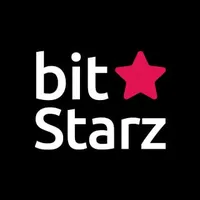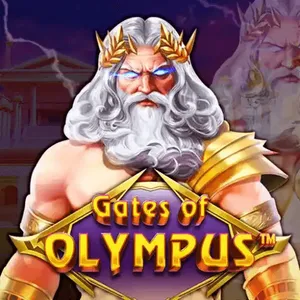0-9
(2FA) Two-Factor Authentication
An added layer of security that involves adding two or more forms of verification before granting you access to your crypto gambling account. It’s strongly recommended that you activate 2FA for enhanced security.
A
Address
This refers to a combination of letters and numbers to form a unique code for sending and receiving cryptocurrencies. You make use of your address to receive money and transfer money to an address given to you by the crypto gambling site for deposits.
Advantage Player
Usually used in blackjack, it refers to a player with the ability of a legal advantage over the house. Typically, such players are those who can count cards skilfully. It can also be used for craps players who have mastered dice control techniques and players who maximize bonuses perfectly.
Altcoin
Coined from the words ‘alternative’ and ‘coins’, it refers to all cryptocurrencies other than Bitcoin.
AML
This is an abbreviation of Anti Money Laundering. It refers to all regulations and policies employed to combat the act of concealing the origins of unlawfully obtained funds by processing them through casinos.
Ante
Often used in poker games, the ante is the bet amount that all players are required to place before the start of the main game. After the ante is placed, the players can make their moves.
ATH
An abbreviation for All-Time High. It is used to denote the highest price ever reached by a particular cryptocurrency.
ATL
Standing for All-Time Low, ATL refers to the lowest price ever reached by a particular cryptocurrency.
B
Bag holder
It describes an individual holding a cryptocurrency especially when the worth has significantly declined.
Banker
The casino personnel in charge of taking lost bets and paying out winnings. The dealer may also be the banker.
Bankroll
The total budget you set apart for gambling over a period.
Bear (Bearish)
Inspired by the downward striking motion of a bear with its claws, this term describes the market trend where prices of cryptocurrencies are expected to fall.
Betting Limits
When talking about a game, this refers to the minimum and maximum stakes you can place. In terms of responsible gambling, it refers to the maximum stake you set for your account.
Bitcoin
The first known and most-recognized cryptocurrency in the world. It was created in 2009 and is also known as BTC.
Binance
One of the largest cryptocurrency exchanges in the world. It enhances the selling, buying, and trading of various cryptocurrencies.
Blockchain
A distributed and decentralized digital ledger that records transactions securely and transparently across many computers. It is the main technology behind cryptocurrencies. Blockchain is used in other areas such as tracking products in supply chains, medical records, and preventing election fraud.
Block Time
The duration for processing and recording a transaction to the blockchain. It is the time taken for a new ‘block’ to be added to a blockchain.
Bull (Bullish)
Inspired by how a bull swings its horn upwards to attack, this term is used to describe a market sentiment when people hope for prices to rise.
BTC-Friendly
A term used to signify that Bitcoin and cryptocurrencies are supported on a platform.
C
CEX
Abbreviation for Centralized Cryptocurrency Exchange, a CEX is a kind of exchange that requires KYC verification from customers. CEXs are the only way to convert your cryptocurrencies to fiats.
Chips
This refers to round tokens (like coins) used at gambling tables to place bets instead of actual money.
Coinbase
A globally recognized cryptocurrency exchange/wallet service based in the US.
CoinsPaid
A payment processor that specializes in cryptocurrencies, widely recognized in the online casino industry.
Cryptocurrency
A digital currency that uses cryptography for security and operates on decentralized technology called blockchain.
D
DAO
An abbreviation for Decentralized Autonomous Organization. It is a transparent organization governed by a computer program that records all its actions and decisions on the blockchain after votes from participants. DAOs operate independently and are free from external influences like governments. You have control over your data and personal information with DAOs. A good example is Ethereum.
dApps
A short form for Decentralized Applications, which are computer programs running on a blockchain. These applications have existed since Ethereum was created and they allow for the development of smart contracts.
DEX
An abbreviation for Decentralized Cryptocurrency Exchange which refers to a peer-to-peer marketplace where buyers and sellers can connect directly. Unlike CEX, it has no central authority or organization.
Decentralized
A network that operates without central control. It involves a system where control is distributed among various nodes or participants for increased transparency and security.
DeFi
A short form for Decentralized Finance, which is a category of banking and financial applications developed completely on blockchain technology. DeFis functions without intermediaries like brokerage firms or banks but relies on smart contracts.
Deposit Bonus
A gambling bonus credited to your account as a result of a deposit you made.
Dogecoin
Often abbreviated as DOGE, Dogecoin initially began as a joke. It is essentially a Litecoin code clone that originated from a meme. Today, it is one of the most popular altcoins.
Digital Asset
Any asset that exists in digital forms without a physical representation. It includes cryptocurrencies like Bitcoin but encompasses other digital tokens and collectibles.
Digital Currency
A broad term used for all forms of currencies in digital or electronic formats.
Dump
A term used to describe a sharp or rapid decrease in the price of a cryptocurrency.
E
ERC-20
An abbreviation for ‘Ethereum Request for Comment 20’, ERC-20 is a widely adopted standard for creating tokens and smart contracts on Ethereum Blockchain.
Ethereum
Known for short as ETH, Ethereum is the second most popular cryptocurrency after Bitcoin. Unlike Bitcoin, it exists as an open-source blockchain that allows for the development of dApps and smart contracts. However, the network is often slow due to the congested network.
Exchange
This refers to any platform that enables the buying, selling, trading, or exchanging of various cryptos and digital assets. It can be centralized or decentralized.
F
Faucet
This refers to a website or application that rewards you with cryptocurrencies for completing simple tasks.
Fiat
Any kind of traditional currency issued by and backed by a government.
FOMO
FOMO is an abbreviation for Fear of Missing Out. It is a situation where crypto holders are not confident about making certain decisions such as buying, selling, or holding a cryptocurrency, for fear of incurring losses or missing gains.
Fork
Fork refers to a situation in blockchain technology where two separate chains have to be created from a shared transaction up to that point. It can be a result of a bug or disagreement among the community. An example is the formation of Bitcoin Cash (BCH) after a disagreement in the Bitcoin community.
G
Gas Fee
It refers to transaction charges incurred for using a blockchain. The fee is paid in the native cryptocurrency of the blockchain. For example, to transfer Tether on Ethereum Blockchain, you need to pay Ethereum as the gas fee to complete the transaction.
H
HODL
Although it originated as a misspelling of hold, HODL has become an abbreviation of Hold On for Dear Life. It is used to indicate that someone does not wish to sell some cryptocurrency.
Hodler
A person who owns or holds a cryptocurrency.
K
KYC
Abbreviation for Know Your Customer, KYC refers to a set of guidelines used by crypto gambling operators to protect their platform from fraud. It requires users to verify their identity and residence as a part of the AML policies of gambling platforms.
L
Ledger
A decentralized digital record that contains a history of transactions.
Litecoin
Denoted as LTC, Litecoin is a decentralized peer-to-peer cryptocurrency that was created as an alternative to BTC. It typically offers lower fees and better speed.
Loyalty Points
Also known as comp points, these are points the casino awards you for real money wagers made on the platform. After accumulating loyalty points to a certain number, you can exchange them for bonuses or other perks.
M
Market Cap
A short form for market capitalization which refers to the total value of all circulating coins or tokens of a cryptocurrency. It is calculated by multiplying the market price of the token by the total number of units of that cryptocurrency.
mBTC
This is a subunit of BTC referred to as milibitcoin. Its value is 0.001 BTC. It is used to represent smaller amounts of BTC, especially when the full Bitcoin amount is not a significant sum.
Miner/Mining
A miner is an individual or computer that takes part in validating and adding new transactions on a blockchain. The individual gets to receive a block reward for the job. The process is called mining.
Monero
Monero is also written as XMR and became the first cryptocurrency with a focus on anonymous and completely untraceable transactions. It is not accepted at some crypto gambling platforms as it is difficult to analyze or trace transactions on its blockchain.
Moon
A slang that describes a situation where the price of a cryptocurrency rapidly increases, especially when it reaches a new all-time high.
O
Operator
This term describes the company that manages an online casino or sportsbook.
P
P2P
Peer-to-peer (P2P) is a decentralized network or system that allows users to connect directly without any central authority or intermediary.
Playthrough Rate
Also known as the wagering requirement or rollover, this refers to how many times you must wager your bonus amount to qualify for withdrawal.
Privacy Coins
A category of cryptocurrencies that offer fully anonymous and private blockchains. Examples of such coins are Monero, Dash, and Zcash.
Private Key
This refers to a cryptographic key known only to you for locking or gaining access to your digital assets. Anyone with your private key can gain access to your wallet funds.
Proof of Stake
A consensus system used by blockchains to confirm and validate transactions and create new blocks. It involves choosing validators among the biggest holders of the network’s cryptocurrency.
Proof of Work
Another consensus system that requires Miners to create new blocks. It consumes more energy than the proof of stake system.
Provably Fair
This refers to an online gambling system that ensures transparency by allowing players to independently verify the fairness of a game’s results.
Pseudonymous
This refers to the act of using a fictional/false identity or name. Many users interact using pseudonymous identities in crypto communities.
Public Key
This refers to a cryptographic key shared openly. It serves as an address to which users can send cryptos. Unlike private key, it is not used to gain access to digital assets but to receive funds and confirm transactions.
Pump
This describes the rising of the price of a particular cryptocurrency or asset.
R
Ripple
Denoted as XRP, Ripple is a centralized blockchain network that focuses on linking traditional financial institutions and banks with the crypto world. It is one of the most popular altcoins in the world.
RNG
An abbreviation of Random Number Generator, RNG is a piece of algorithm or software used in casino games to ensure that game outcomes are random and unpredictable.
Rollover
The same as the playthrough rate or wagering requirement.
RTP
Also known as return to player, RTP is the percentage that denotes the amount of money you can expect to get back from wagers spent on a game over a period. For instance, if a game has an RTP of 96%, you can expect to get $960 for every $1000 wagered in the long run.
S
Satoshi
Satoshi refers to the smallest possible unit of Bitcoin. It is measured as one hundred millionth of Bitcoin. It is named after the pseudonymous creator of Bitcoin, Satoshi Nakamoto.
Smart Contract
A smart contract refers to a set of rules, codes, or algorithms used to automate processes on a blockchain. It verifies the terms of a contract without the need for intermediaries. For example, you can use a smart contract to automate the transfer of a certain amount of cryptocurrencies to a user’s wallet on his/her birthday.
Stablecoin
Another category of cryptocurrencies designed to maintain a stable price by pegging them to fiat currencies like USD or commodities like gold.
T
Tether
Also known as USDT, Tether is one of the most popular stablecoins that operates on the Ethereum blockchain. Tether is typically pegged to USD.
Token
This refers to a representation of digital assets or units of cryptocurrencies issued on a blockchain.
Transaction Fee
Small cryptocurrency fees paid to miners or validators for transactions.
U
USD Coin
Another prominent stablecoin in the market, USDC is also pegged to the US Dollar. It was developed by Coinbase and Circle, a payment service provider.
V
Volatility
In terms of blockchain, volatility is the degree of fluctuation in the value of a cryptocurrency or digital asset. When talking about casino games, it refers to how often a specific game pays and the risks of wagering on it.
W
Wagering
This refers to the act of placing bets in games or staking on sports or other events.
Wallet
A software or application where you can store your cryptocurrencies and other digital assets.
Whale
A whale is a term used for an individual who holds a large amount of a specific cryptocurrency, usually Bitcoin.
Z
Zcash
Denoted as ZEC, ZCash is another popular privacy coin. The blockchain has a strong emphasis on anonymity and speed.



























